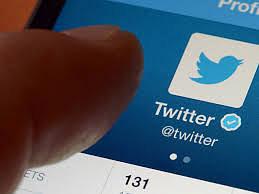Social Media: Five Things No Business Should Tweet About
No two sets of personal boundaries are alike.
Some people readily share anything that comes to mind. They’re content to live in their own skin, no matter the consequences.
Others hold things closer to the vest. They volunteer little, knowing full well that anything they say can and probably will be held against them in the court of public opinion.
Is one approach necessarily better than the other? Both sides have compelling cases to make. And, when one’s professional or personal well-being is on the line, there’s likely a strong case to be made for the former.
The First Rule of Business…
Even if you take an evenhanded view of this debate in the personal arena, you’re probably less sympathetic to the idea that businesses — and the individuals who represent them — should be allowed to say whatever they want, whenever they want. In an instant-gratification culture where news breaks faster than newsmakers can control it, enterprises need to be uber-careful about what they say and do. The business community perennially lives under the microscope, no matter how hard they’d like to pretend otherwise.
No place is the gaze of that microscope more unflinching than in the cacophonous arena of Twitter, that most unruly of social media. If your company has an active Twitter presence, as most every company of any size does at this point, it needs to understand what it can and cannot say on the platform — in other words, where its boundaries really lie.
Curious about what’s really off-limits in the world of business Twitter?
1. Personnel Matters
“We fired Jeanine today. Most of us were happy to see her go.”
That’s a tweet you’ll never see a sane social media manager send out from his employer’s official Twitter handle. Doesn’t matter how many people already know or what everyone knows everyone else is thinking: You. Do. Not. Tweet. About. Personnel. Matters.
2. Employees’ Personal Activities Outside Work
No one cares what your office manager had for lunch or did on his day off. And, when employees’ off-the-clock activities are controversial or reflect poorly on the company, they can actually create an unintended, unwelcome backlash.
“Corporate teams function more effectively with bright lines separating the personal and the professional,” says George Otte, a Miami-based entrepreneur with experience managing large teams. “Employees need to know what they can and cannot say on Twitter, without feeling like they’re being unduly restrained.
3. Auto DMs
Auto DMs are annoying — the Twitter equivalent of telemarketing calls at dinner. The jury is also out on whether they actually serve their intended purpose. When savvy Twitter users receive auto DMs, no matter the content, they might think “hmm, pushy” and leave it at that. The only prospects for whom auto DMs work are those who don’t realize they’re automated, and their number is shrinking steadily.
4. Anything Audience-Inappropriate
Every audience is different. Some businesses live on the edge, injecting racy or controversial material into their marketing. Others project wholesome images that can’t be tarnished with even a whiff of NSFW. You know your audience better than anyone, so it’s on you to determine where the line lies. You’ll know when you’ve overstepped, thanks to the angry parents banging down your virtual door
5. Politics or Religion
Call this the “if you wouldn’t talk about it at Thanksgiving” rule. Basically, your business shouldn’t tweet about any topics its employees or clients feel uncomfortable bringing up around the Thanksgiving dinner table. If your rank-and-file employees or even key leaders want to tweet about issues that matter to them personally, counsel them to use “tweets my own” disclaimers and periodically stress that they’re not acting in official company capacity.
Have you sent out any cringeworthy tweets recently? What did you do to manage the fallout?
Comments
There are 0 comments on this post













